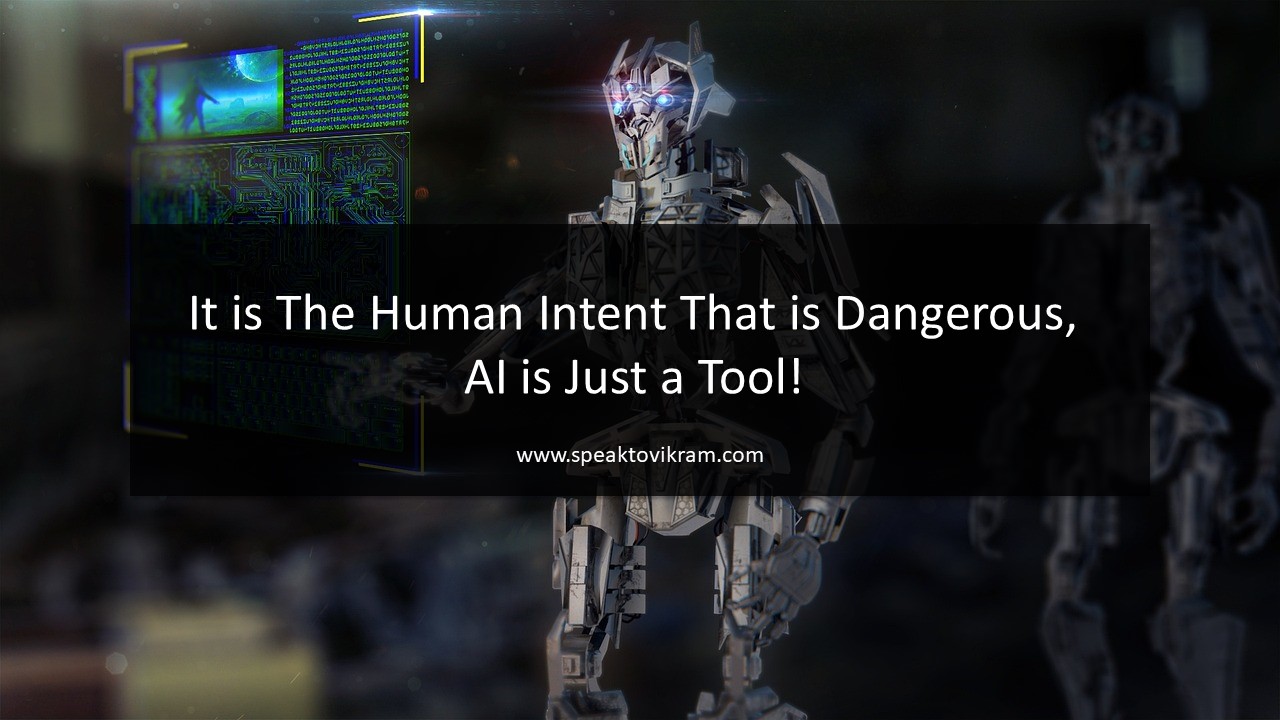“AI is far more dangerous than nukes,” Elon Musk once declared, echoing a sentiment that has fueled debates and discussions about the role of artificial intelligence (AI) in our world. While this statement might sound alarming, it sheds light on a crucial aspect of the relationship between humans and AI – the role of human intent in shaping the impact of this powerful tool.
At its core, AI is a creation of human ingenuity, a product of algorithms and models designed to process information, learn, and make decisions. Unlike humans, AI lacks consciousness, emotions, and personal motivations. It operates as a neutral entity, responding to the programming and inputs it receives. The true danger, as Musk suggests, lies not in the inherent nature of AI but in the intentions that guide its creation and application.
Consider AI as a double-edged sword, a tool that can either be a force for tremendous good or a source of potential harm. Its neutrality allows it to be harnessed for a myriad of positive applications, from revolutionizing healthcare to aiding in environmental conservation. In the healthcare sector, ethical AI applications contribute to diagnostics, drug discovery, and personalized treatment plans, enhancing the efficiency and effectiveness of medical practices.
Similarly, AI can play a pivotal role in addressing environmental challenges. By analyzing vast datasets and satellite imagery, it aids in monitoring deforestation, climate change, and other ecological issues. In this way, AI becomes a valuable ally in informed decision-making for the preservation of our planet.
Also Read: The Beauty of Imperfection: Embracing Flaws and Embodying Self-Acceptance
However, the dark side of AI emerges when human intent takes a malevolent turn. Unethical AI applications, driven by greed, power, or malicious intent, pose significant threats to privacy, security, and social justice. Surveillance technologies, powered by facial recognition and unchecked by regulations, encroach upon individual privacy rights, leading to concerns about mass surveillance and its societal implications.
Autonomous weapons, another manifestation of unethical AI, introduce a new dimension of global security risks. The absence of human intervention in decision-making processes raises ethical questions and fears of unintended consequences, emphasizing the importance of responsible AI development and deployment.
Moreover, the issue of bias and discrimination within AI systems adds another layer of ethical complexity. If not carefully designed and monitored, AI algorithms can perpetuate and even amplify societal biases, whether in hiring processes or predictive policing, posing a significant challenge to achieving fairness and equality.
In essence, Elon Musk’s cautionary words serve as a reminder that AI is a tool – a tool that reflects the intentions of its human creators. The responsibility to guide AI toward positive outcomes rests squarely on the shoulders of humanity. As we navigate the uncharted territories of AI development, a thoughtful and intentional approach is paramount to ensuring that this powerful tool benefits society without compromising ethical standards.
The debate around AI’s dangers underscores the need for a collective commitment to ethical AI practices. By understanding and acknowledging the pivotal role of human intent, we can steer the trajectory of AI toward a future where its potential is harnessed for the greater good, minimizing the risks associated with its misuse. The journey towards responsible AI requires a delicate balance between innovation and ethical considerations, paving the way for a harmonious coexistence between humans and the intelligent machines they create.



